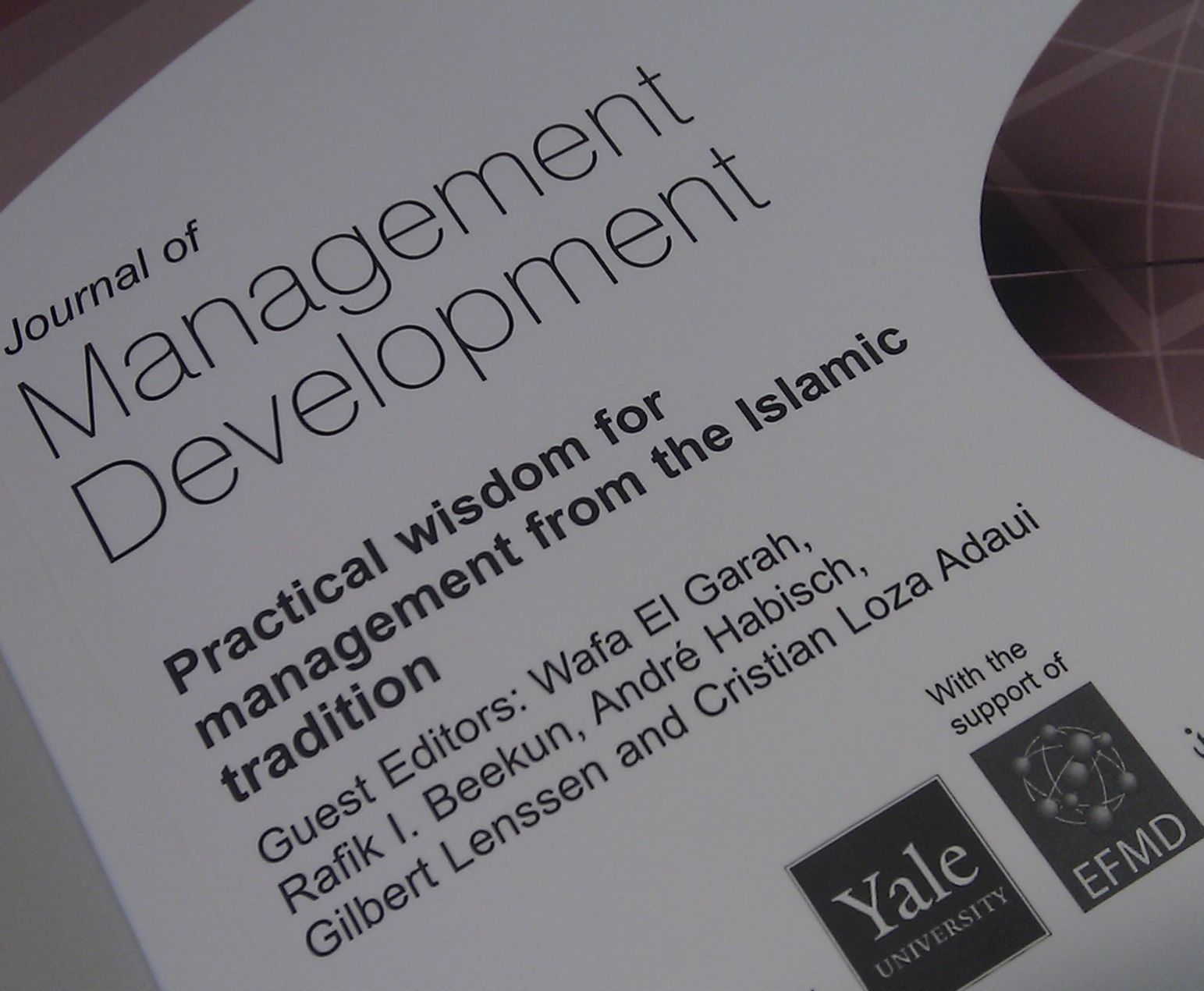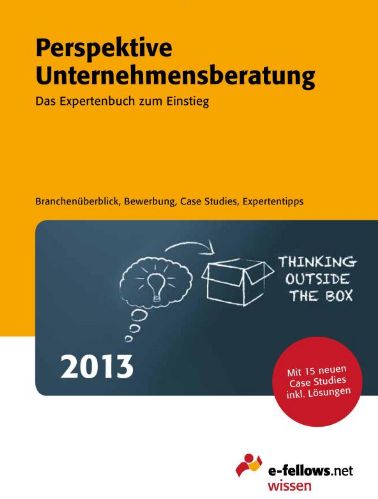I am so happy, honored & humbled to win together with Michael Smets and Tim Morris the 2021 OMT Best Published Paper Award for the article ’God at Work’: Engaging Central and Incompatible Institutional Logics Through Elastic Hybridity published at the Academy of Management Journal.
I think this is the highest achievement for an article in my discipline. It is deemed the best article within organization and management theory among all articles published in all journals in 2020 (in the entire universe, of course, too ;). For me, it feels a bit akin to winning a Nobel Prize, just without the money – which would have been nice.. 😉
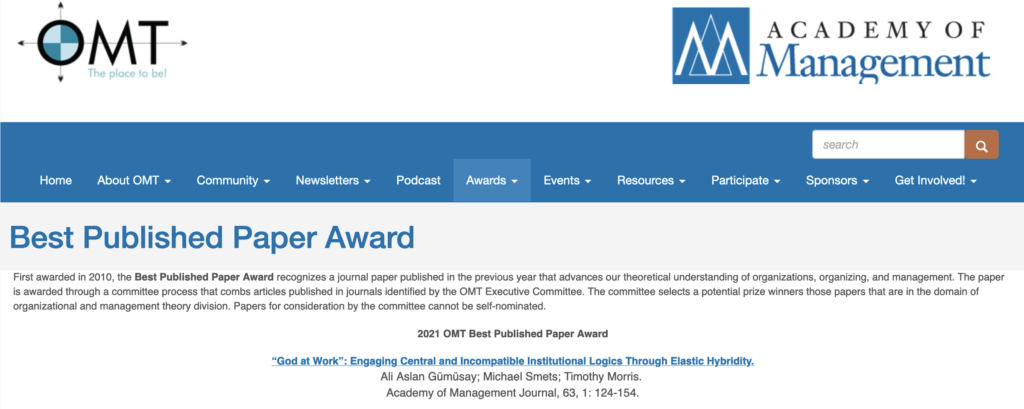
So here is my Oscar, I mean OMT Best Published Paper Award “acceptance speech”:
Thank you to so many anonymous heads, hearts and hands: I was told that multiple committees went through a step-by-step screening process for this award. To all those anonymous colleagues: thank you. Much of our work as reviewer and colleague remains formally unrecognized, but it is actually at the centre of our profession. It keeps our profession together. Thank you Michael Lounsbury for chairing this selection process. Thank you Elaine Hollensbe for being a tough but just editor. Thank you Michael and Tim for embarking on this 6-year journey together.
Thank you to my academic homes during this process: Oxford, WU Vienna, Hamburg and HIIG and to colleagues that make academia meaningful and a collective pursuit. This article – like most – is a co-production and effort of the many. It would not have been thought-able without previous work in, for instance, institutional and paradox theories. And it would not have been writ-able without the countless conversations that continuously transform my, our thinking. Every article deserves an “et al” of the many.
Thank you to my family for enduring the oddities of an academic mind, who is ultra-happy if he receives a very high risk revise-and-resubmit. We are odd creatures. At some point my son spoke of “A M J”. So this work leaves its mark on us, families and friends.
Let me also mention a few other thoughts. Academia is painful and more often about rejections (not failures!) then acceptances (conditional, of course…). Just 3 weeks ago I received a 2nd round reject in a so-called A+ journal. This happens to all of us. We are in this together.
Also, academia is about so much more than publishing. Publishing may be the necessary condition for tenure and jobs (and here personally, I believe in diversifying our metrics and cherishing a diversity of excellence), but it is not, in my opinion, a sine-qua-non condition for being a good academic. And this sole metric has made some of us instrumentally outcome (publish: yes/no) rather than process-focused (intellectual pursuit: yes/no). Personally, I cherish the reviewing process to make a paper better. And I cherish equally the kind and intriguing conversations at conferences or in hallways – with a delicious coffee. We all know this feeling when reading a new thought in a book or article or a conversation that makes us re-think and think further. Am simply loving it. So – and here some of you may differ – I would not see my academic life as a success if I have published only A+ publications, but rather written a mix of intriguing articles and complemented them with having impact – intellectually and practically. By having helped to steer this ship that we call OMT and its adjacent “real worlds” slightly forward in a collective effort.
I simply enjoy too much the intellectual conversations with colleagues about something meaningful and the sparkling eyes of practitioners when a concept truly matters. Please see this as an invite to approach me at conferences and elsewhere. Especially after 1,5 years of digital conferences, my heart and mind yearn for meeting people in person and to talk about research, about society, and also the manifold other topics that make our lives colorful (children, coffee, nature, Karate, …).
If you ask yourself what the article we got the award for is actually about: It is about how to achieve unity in diversity despite competing values that are both incompatible and central to the organization and its employees. Through what we call elastic hybridity organizations are capable of institutionally bending without organizationally breaking thereby enabling individuals to practice more of their personal convictions at work while still experiencing a sense of shared organizational purpose. For more:
- A video summary.
- A related Harvard Business Review article & article in German in Konfliktdynamik.
- Media coverage.
What’s next for me, i.e. what keeps me awake? I am very intrigued by questions at three intersections: values and organizations; grand challenges and organizations; and digitalization and organizations. A couple of articles here are forthcoming and I am more than happy to share them with you. At the HIIG in my research group, we work on AI, platforms, open innovation and digital (social) entrepreneurship. Happy to share more about our findings here, too.
But for now, I shall celebrate. 🙂
Update. Here is the award interview:
And the award itself:
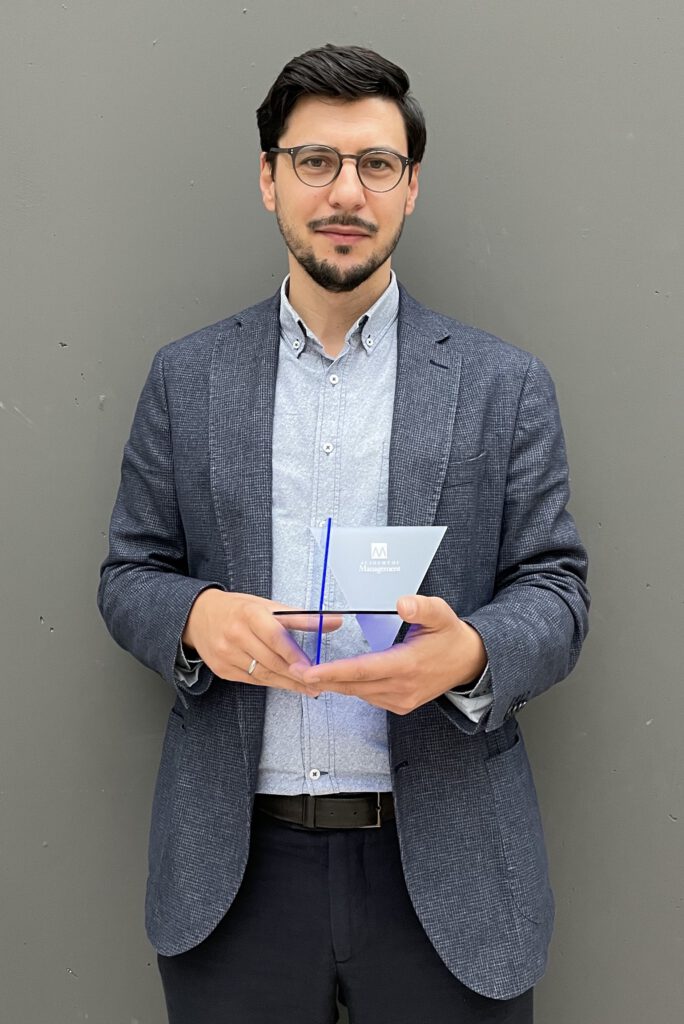

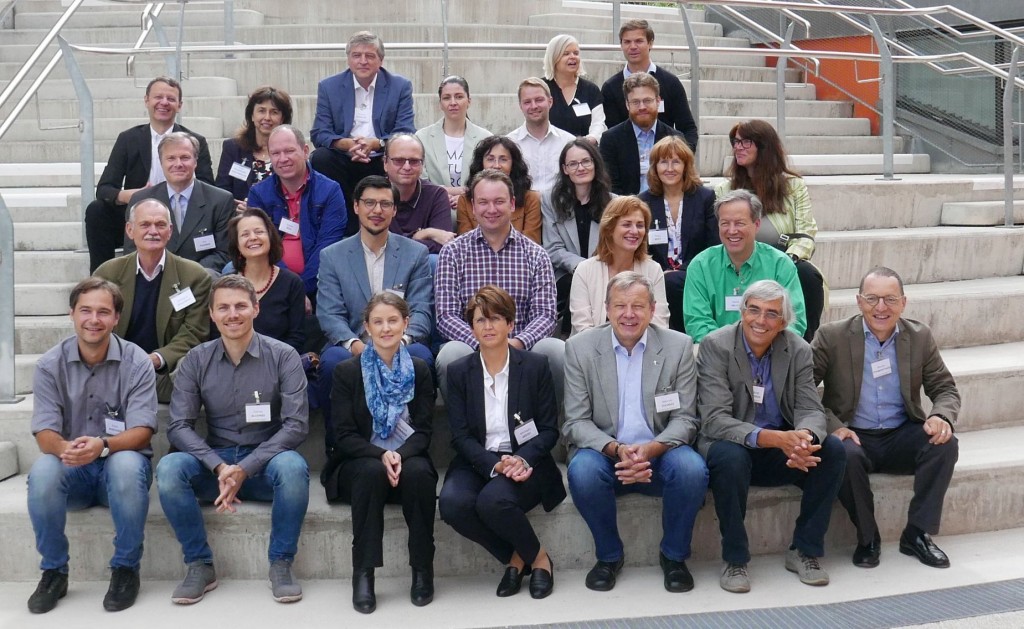
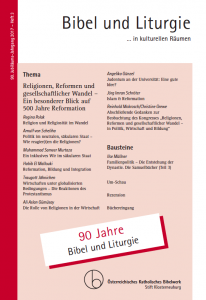 weitestgehend ein Tabu. Über Religion redet man nicht. Man schweigt sich aus. Gleichzeitig werden Spiritualität, Meditation und Yoga salonfähig. Sie versuchen sich als mögliche Alternativen für Sinnstiftung und Orientierung in einer chaotischen und komplexen Welt. Doch das Thema Religion scheint nicht ausgestanden zu sein. Im Gegenteil: Es beherrscht den politischen Diskurs, spaltet Gesellschaften und Gemeinschaften, ist fast omnipräsent in den Medien. (…)
weitestgehend ein Tabu. Über Religion redet man nicht. Man schweigt sich aus. Gleichzeitig werden Spiritualität, Meditation und Yoga salonfähig. Sie versuchen sich als mögliche Alternativen für Sinnstiftung und Orientierung in einer chaotischen und komplexen Welt. Doch das Thema Religion scheint nicht ausgestanden zu sein. Im Gegenteil: Es beherrscht den politischen Diskurs, spaltet Gesellschaften und Gemeinschaften, ist fast omnipräsent in den Medien. (…)